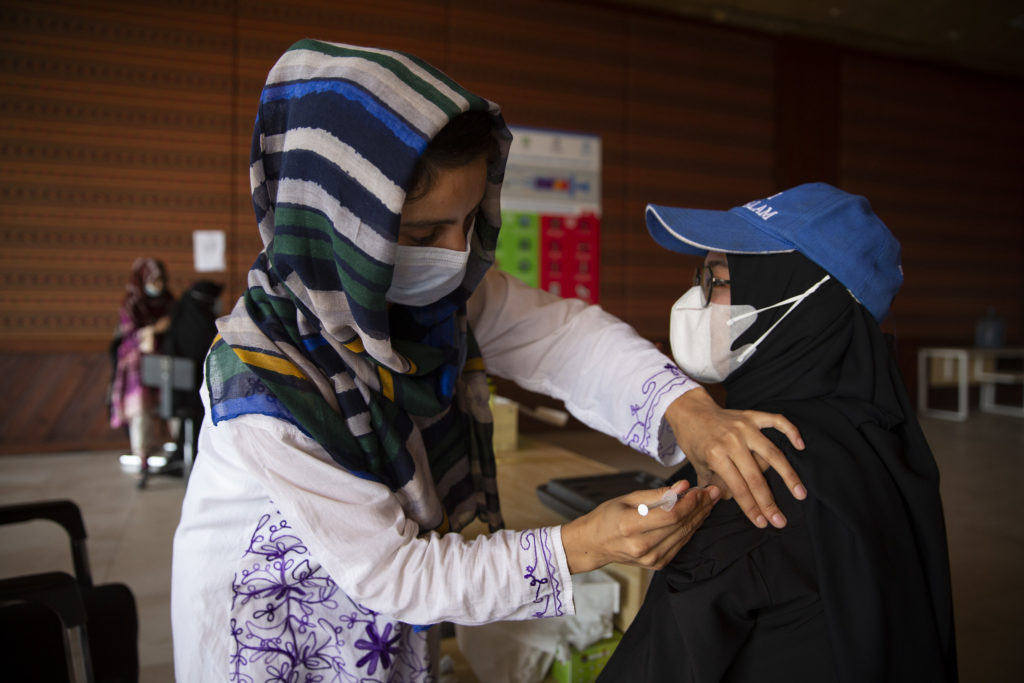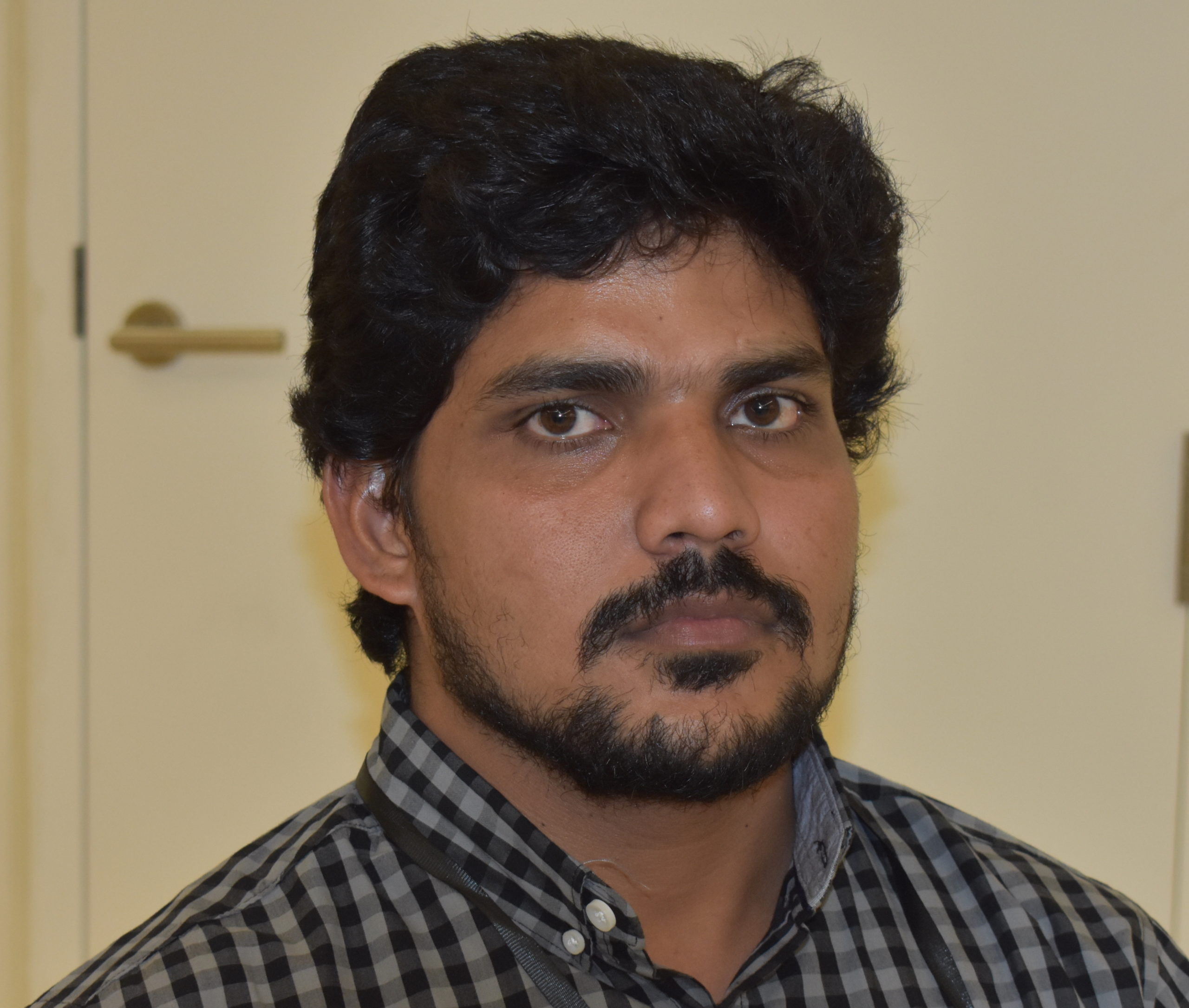
The coronavirus pandemic has impacted nearly every individual across the planet. It has ended and upended lives, forced people to make decisions that just a few years before would have seemed unimaginable, and completely, perhaps forever, altered the way people live and go about their daily lives. The following post will explore differing attitudes towards the pandemic across groups from around the world, the sources of pandemic conspiracy theories, and how religious dynamics tie into these two components. This reflection arose from the collaborative discussions between students of the Madrasa Discourses program and a Notre Dame student during the summer of 2021.
Pandemic Perceptions Across Identity Groups
At the outset, we note that attitudes towards the COVID-19 pandemic and vaccination against the disease have varied across the socio-political fabrics of different countries. There has been no linear or singular trend in how people have responded to the pandemic. This should not be surprising. Any group of people—whether grouped by religion, social strata, or political affiliation—will have a different response. There is no one way to respond to the pandemic because people have diverse religious and cultural identities that lead them to respond in different ways. Across the globe, though, there are categories of responses that people fall into concerning the pandemic and the vaccine. Most people are welcoming of the vaccine and ready to receive it. Others are happy that a vaccine exists but are skeptical of what they have been hearing and coming across in some news sources regarding (rare) side effects and other potentially dangerous consequences. They worry, for example, that they are lab rats who are being given a vaccine with unproven effectiveness, or that they are likely to receive expired or adulterated vaccines. There are also those who refuse to receive the vaccine for personal, religious, political, and/or other reasons. There are even some who do not even believe that the coronavirus and thus the pandemic are real at all. They think COVID-19 is a fabricated disease and that the soaring number of deaths is nothing out of the ordinary.
Our group discussions focused on this third group, namely those who do not believe in vaccines or the pandemic. These perceptions can at times be driven by different myths, propaganda, and conspiracy theories. Perhaps one of the most prominent drivers of COVID-19 skepticism and conspiracy theories are social media platforms, such as Facebook and TikTok. Some vaccine conspiracy theories that have been widely circulated in India, the US, and Pakistan include the belief that the vaccine will cause you to grow an extra body part, will cause you to “glitch,” will turn you into a werewolf, or will make you infertile. Others believe that the vaccine is actually a microchip tracking device (see some of these myths dispelled here). Still others believe that the vaccine causes autism or a possible DNA gene mutation. While most of these conspiracy theories are created for mere laughs, they nonetheless reveal that people’s beliefs about the vaccine, especially skepticism, fear, or denial, reflect the socio-political dynamics of their countries.
There has been no linear or singular trend in how people have responded to the pandemic. This should not be surprising. Any group of people—whether grouped by religion, social strata, or political affiliation—will have a different response.
One conspiracy theory in circulation among the Muslim minority in India is that the vaccine creates some sort of magnetic force within the body. The conspiracy theory has evolved to include the belief that the United States government may eventually use this magnetism to pull Muslims out of the country and onto Mars. This conspiracy theory reveals much about this identity group’s deeper feelings of mistrust towards the Indian and American governments, which are perhaps further rooted in the feeling of being a minority religious group in their country. Coupled with the irresponsible responses of some political leaders and a lack of trust in the governmental institutions, some people are reluctant to take vaccines from government centers and government medical institutes. They doubt whether the proper vaccine is being injected into them and are concerned that they are being fooled in some way. Another contributing factor among these identity groups is that religious scholars that are held in high esteem are sometimes skeptical of modern tools (such as medical technologies) and methods of modern medicine. When these scholars believe in such misconceptions, they are likely to misguide many others as well.
In the United States, some Catholic Christians are likewise hesitant to receive the vaccine and some flat-out refuse to receive it. They refuse, however, on different grounds than Muslims in India. Some Catholic Christians are concerned that one of the vaccines was made using fetal stem cells. Under normal circumstances, the Church condemns such a practice. A core belief of the Catholic Church is respect for the dignity of all human life, from conception until natural death. Because obtaining embryonic or fetal stem cells typically requires destruction of the embryo or fetus, this practice, therefore, comes into conflict with Catholic doctrine. The global pandemic, and the controversy surrounding the use of stem cells, led Pope Francis to issue a church order to assure members of the faith that in these devastating and unprecedented circumstances receiving the vaccine was recommended, though not obligatory. The Coronavirus has forced Church members all the way up to the highest levels of leadership to make difficult decisions on the tenets of their faith and notions of morality.
In Pakistan, responses to the COVID-19 vaccine have been varied. Although people are often reluctant to receive the vaccine, they again have different reasons than some Muslims in India and some Catholic Christians in the US. The people who have less exposure to authentic information have the oddest reasons for opposing vaccination—for example, that the vaccine may be a population control mechanism, or that it may cause a life-threatening disease. Others influenced by social media believe in different conspiracy theories, including an international conspiracy that the vaccine is intended to surveil and control different populations. Moreover, even some educated and literate people, who typically do not believe in conspiracies, are hesitant to receive the vaccine because they are unsure of its quality. One example is the reluctance of frontline health care providers to get vaccinated. Their reason for not wanting to be vaccinated is that they do not trust the health care system and/or are worried about becoming lab rats. It should be noted that Pakistani Catholic Christians do not raise the stem-cell issue as US Catholic Christians do, keeping in mind that Christians in Pakistan make up only 1.27% of the population while Christians in the United States make up 72% of the population. Rather, their concerns are the same as those mentioned above, and thus are more correlated with the socio-economic class they belong to rather than their religious affiliation. The threatened identity, be it religious or socio-economic, is the source of the conspiracy in which one believes. In each of these identity groups’ narratives, people believe conspiracies because they lack trust in social and political institutions. They believe theories because believing reality feels more dangerous or detrimental to them.
The sources of conspiracies are not religious beliefs but rather are the reservations and vulnerabilities a community already has towards the government, society, or another distrusted entity. Any part of the community that does not receive clear and trusted information will be most inclined to conspiracies. It is the fear of the unknown and uncertain or the feeling of being under threat that is the source of conspiratorial thinking.
Reckoning Identity with the Pandemic
This post has been focused on the relationship between identity, religion, society, and conspiratorial thinking. To conclude, we turn briefly to the deeper questions the pandemic has raised about religious belief and practice.

During the pandemic, many individuals and groups were forced to confront foundational issues and questions that they would never have considered. Individuals and religious institutions were forced to make difficult decisions and adapt to a new way of living, praying, and engaging in fellowship with one another. On a logistical level, the pandemic has barred religious people from attending services in person, but, on the other hand, it made virtual services possible. On a more spiritual level, the pandemic has pushed some to become more hostile to religion, while it has pushed others to become more religious. Believers no longer have physical access to their places of worship and may thus feel isolated or abandoned by their religious community or God Himself. They may ask: Why has God allowed such suffering to occur? This may lead them to start questioning their religion or reconsider their faith. For this reason, global religiousness and religiosity may decline. On the other hand, the pandemic led some people to reconsider or revive the religious spirit. The sickness and loneliness that the pandemic has wrought has pushed some believers closer to religious practices and rituals. Some consider it to be a phenomenon depicting the human power to thrive and survive in response to a global dilemma. It has nothing to do with spiritual or divine causes.
The challenges to religious belief as well as the rampant proliferation of conspiratorial thinking indicate that the pandemic has had a significant impact on society. Addressing these impacts will require individuals, communities, and governmental institutions to reevaluate their understandings of the world and their priorities within it. Reckoning with one’s faith is a necessary step for these identity groups in moving forward in this new pandemic world. Likewise, establishing or reestablishing trust in communities and governments appears to be another essential step on the path forward. It seems vital that people be included and involved in decision making and policy in an unbiased manner that addresses community concerns. Additionally, the almost uncontrollable dissemination of unverified information and misinformation demonstrates the dire need for reliable and authentic information.
The world has changed, and people’s identities must change with it.



